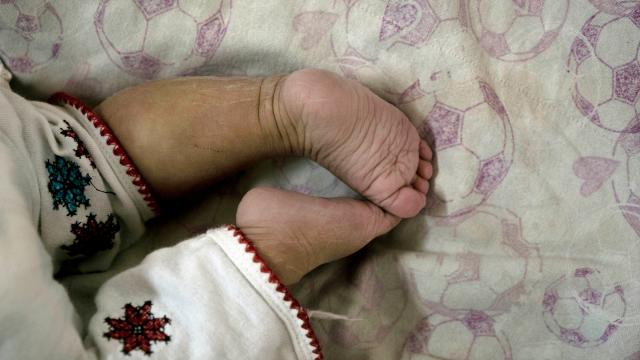Mums and dads shouldn’t expect their sleep habits to bounce back to the way they were before kids for at least the first six years of their child’s life, according to a new long-term study involving nearly 5,000 parents.
When my own children were very young, I convinced myself that my sleep would never return to the way it was before I became a parent. The good ol’ days of uninterrupted nights and luxurious weekend sleep-ins had become a fading memory, so I resolved myself to my fate. My kids are all grown up now, and I can honestly say my sleep patterns are finally back to normal—but wow did it ever take a while.
A new paper published today in the science journal Sleep reminded me of those days when my kids were small, and how I struggled to get sufficient sleep. It affirmed my personal experience, showing that, parents — both mums and dads — experience less sleep and poorer sleep satisfaction for a period of up to six years after the birth of their first child.
The new study was led by University of Warwick researcher Sakari Lemola, who recruited specialists from the German Institute for Economic Research and West Virginia University. Data for the study was taken from the German Socio-Economic Panel — a long-term data gathering study involving annual face-to-face interviews with participants. Lemola’s team analysed the sleep of 4,659 German parents (2,541 women and 2,118 men) who reported the birth of a first, second, or third child from 2008 to 2015.
“Several studies have examined the association between sleep duration and having children,” Kelly Sullivan, a sleep expert at Georgia Southern University who wasn’t involved with the new study, told Gizmodo. “This study is particularly informative due to its approach of systematically following the same group of people prospectively over time, thus avoiding many of the limitations other study designs encounter.”
As the new study noted, diminished and interrupted sleep peaks during the first three months after a child’s birth—a challenging time when babies are fussy and in need of near-constant attention. During this initial three-month period, mothers said they were getting one hour less sleep than before, while fathers were getting 15 minutes less sleep on average. In the two to three months that followed, mothers got an additional 30 minutes of sleep, while fathers held steady at 15 minutes of lost sleep each night.
These findings were not surprising to Sullivan, who said “sleep challenges are common and are more prevalent among women.”
As the authors wrote, “maternal sleep satisfaction improves” as time passes, but it “does not reach pre-pregnancy levels even up to six years postpartum.” By year six, mothers are still getting 20 minutes less sleep than before their pregnancy.
“Causes of the long-term decrease in sleep satisfaction and duration till six years after birth may involve changes in duties, strains, and worries related to the parental role even when children are older,” the authors wrote.
Somewhat surprisingly, factors such as household income or dual versus single parenting did not have an influence on the reported levels and quality of sleep; rich or poor, single or partnered — it didn’t seem to affect the results. That said, first-time parents reported poorer sleep compared to experienced parents. Also, mothers who breastfed also reported a slight decrease in sleep satisfaction compared to mothers who bottle-fed their babies. The father’s sleep was not affected by breastfeeding or bottle-feeding.
Mothers consistently reported getting less sleep than fathers, the reason being that “mothers, including working women, still have more household and child rearing responsibilities and spend more time on these tasks compared with fathers in most industrialized countries including Germany,” according to the authors. That said, sleep satisfaction and sleep duration in fathers didn’t rebound to pre-pregnancy levels up to six years after the birth of their first child.
These results are upsetting because inadequate sleep has been associated with a number of health problems, as Sullivan explained.
“Other studies have shown insufficient sleep to be associated with increased accidents, problems concentrating, poor performance on the job and in school, and possibly, increased sickness and weight gain,” she told Gizmodo. “Insufficient sleep can also increase the risk of diabetes and cardiovascular disease for both men and women. Studies have found women who report sleepless nights have a greater risk for health problems like heart disease, type 2 diabetes, depression, and weight gain.”
In terms of what parents can to do cope and protect themselves from the effects of poor sleep, Sullivan said it’s important to consider the needs of each individual and family situation.
“For parents, lifestyle management strategies might include stress management, exercise, enlisting help from family and friends and seeking the guidance of professionals such as therapists or physicians when needed,” said Sullivan. “Families benefit from prioritising healthy sleep—this can be accomplished through limiting caffeine intake, having a consistent and calming evening routine, keeping the bedroom dark, and reducing exposure to bright screens such as cell phones, tablets, and TVs close to bedtime.”
Accordingly, the authors of the new study said their findings should encourage other researchers to investigate the ways in which parents can further protect themselves from the health effects associated with diminished sleep. At the same time, advice and support should also be provided to parents who are preparing to have children, they recommended.
And as my own personal situation demonstrated, it does eventually get better. This period in a family’s life can be extremely challenging, but it eventually comes to an end.
